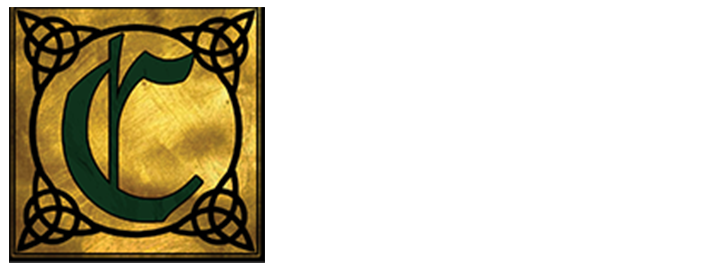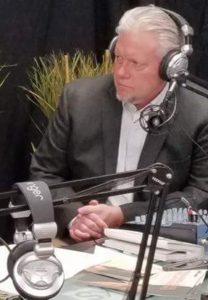What is our Christian responsibility with possessions, wealth, & finance?
A Biblical Reason for and Practice of Giving.
 God perfectly created the physical world (Gen 1: 3, 5, 7, etc). The Creator is landlord: He owns everything (Deut 10:14; Job 41:11; Ps 89:11; 1 Kg 21:1-3). Sin, then, marred the world despoiling goodness (Gen 3.17-19). Redemption must include wealth, not using people and love things (Lev 25:14-17) but loving people and using things (Lev 25:25-28). Biblical stewardship seeks to create jobs, wealth, opportunity and community. Private property is a cornerstone of Hebraic law (Ex 20:15, 17) yet its profit was to help the community (Ex 22:25-27; 23:4-9). The oft used word “stewardship” literally means to be “keeper” of the household. So everything is a gift of God. And what God has given as a gift must not become God.
God perfectly created the physical world (Gen 1: 3, 5, 7, etc). The Creator is landlord: He owns everything (Deut 10:14; Job 41:11; Ps 89:11; 1 Kg 21:1-3). Sin, then, marred the world despoiling goodness (Gen 3.17-19). Redemption must include wealth, not using people and love things (Lev 25:14-17) but loving people and using things (Lev 25:25-28). Biblical stewardship seeks to create jobs, wealth, opportunity and community. Private property is a cornerstone of Hebraic law (Ex 20:15, 17) yet its profit was to help the community (Ex 22:25-27; 23:4-9). The oft used word “stewardship” literally means to be “keeper” of the household. So everything is a gift of God. And what God has given as a gift must not become God.
Good in Creation Comes from a Good Creator
- The fact of naming creation (Gen 1:5, 8, 10) asserted God’s authority over His world (2 Kg 23:34; 24:17).
- Claim over all the earth’s wealth (Ps 50:10-12) indicates The Creator is in need of nothing (1 Kg 8:27; Acts 17:25).
- Not only does God have no rivals in creation (Is 44:24; 45:12, 18) but creation knows her place (Ps 104) even though humans may try to replace God with His creation (Is 44: 6-20; Rom 1:21-25).
- The declaration that creation is “good” (Gen 1:4, 10, 12, 18, etc.) establishes people as tenants: humans manage everything (Gen 1:28; Lev 25:23-24; 1 Chron 29:10-20).
- Earth is given to humanity (Ps 115:16) yet the “alien” clause identifies human dependency.
- Responsibility is established both toward God and for possessions. Cultivation (“work”, Gen 2:15) demands a literal guiding of the ground toward increased development. Conservation (“take care”, Gen 2:15) stipulates guarding against neglect of the planet. Animals are “given you’re your hands” (Gen 9:2) and even said to be “tamed” (Jas 3:7) by man. Animal husbandry was one of the twin essentials of an agricultural society (Ex 22; Deut 22:1-4, 6-7).
- Resting (maintaining) the animals (Ex 20:10; Deut 5:14) provided for longevity of resources by acknowledging God’s program for sustaining life. Horticultural laws throughout the Pentateuch insisted upon care in custody for what has been given. Jublilee, for example, was a celebration (Lev 25:8-13) and a liberation (25:18-22) of property.
- Everything exists for God (Heb 2:10) though at present we do not see everything subject to Him (Heb 2:8; 1 Co 15:27-28).
- Teaching on private ownership and responsible stewardship should be wedded (Lev 19:9-10; Deut 15:1-11; 23:24-25; 24:19-22).
- Wealth produces accountability and opportunity to benefit all (1 Tim 6:17-19).
How Should My Mindset Be Changed About Wealth?
I understand humanly speaking I “own” things but things should not “own” me and all I “own” has been given to me for responsible use.
I know that corrupt views of wealth may entice me.
Asceticism—where poverty equals virtue and wealth equals greed—is not set forth in Scripture.
Materialism is not what we possess but what possesses us.
Communism is just as odious. Premised upon redistribution of resources, ownership is forcibly wrested from individuals into the hands of a dictator.
Custodial use of the earth is dependent upon faithful, responsible, creative people.
Giving is to be “open-handed” versus “tight-fisted” (Deuteronomy 15:7-11)
Handling creation properly now should be prompted by my consideration of the next generation.
Proper use of creatures and creation is my responsibility. Animals, money, and toos that will help us to do work must include concerns for proper maintenance, quality vs. cost considerations, and wise purchases.
Practical Ways I Can Teach Others What I Have Learned
- History curricula should focus on rich and poor people from the vantage point of corrupt governments as much as it might corrupt businesses.
- Read Hebrews 10:32-39. Discuss how you would feel emotionally if someone took all your property? How would you treat or pray for those who took part in stealing your things? Write down “lasting possessions” (v 34) you can lay claim to from Colossians 3:1-4; 1 Peter 1:3-9, 17-25; and Ephesians 1:13, 14.
- Discuss Luke 21:1-4. Notice the preceding context in 20:41-47 (as well as all of chapters 19 and 20). Why did Jesus say what He did, judging from His previous conversation (Hint: v. 47)? Discuss what people do with their money and compare that with what they say about money (i.e., complaining about not having enough when they have lots of toys).

- Compare by reading Psalm 50 and Malachi 1. Discuss the connection between attitude and action in giving.
- Assign partners or small groups to write down statements from Proverbs about money (especially chapters 10-31). Compile a master list of “how to live with money.”
- Words matter. Compare the words used to describe the Macedonian churches’ giving (2 Cor 8:1-4) with the reminders to the Corinthian church (2 Cor 8:6-15 and 9:1-4). Observe who and how money should be handled in The Church from 2 Corinthians 8:16-19 and 20-24.
- Define-discuss: the worth/value of money, how money is made, and “profit.” What is the importance of making profit (Gen 2:15)? How should we treat a dollar to make more money in an honest, ethically upright manner?
- Missions. Read and apply Luke 16:1-9 about “making friends in heaven” from the giving of those who have more to those who have less (see also 1 Timothy 6:17-19)
- Game. Using the game “Monopoly” remake the Chance and Community Chest cards to Providence and Charity. Restructure the purpose of the game to include giving and compassion without minimizing the need to make money for the benefit of the whole community.
- Reading. At the high school level I would read Thomas Sowell and Walter Williams. At the elementary level there is a new fiction series that teaching a free-market approach to monetary issues entitled The Tuttle Twins and the Road to Surfdom, Connor Boyack (2016).
Help Comenius reach its $40,000 giving goal this year! The Comenius Institute [501(c)(3)] (website here) Donate online (here), mark@comeniusinstitute.org, (text/talk 630.303.4891) Checks to “The Comenius Institute,” c/o Collaborate 317, 4202 N EMS Blvd #180, Greenfield, IN 46140 And ask what Comenius would do with $1 million!
Dr. Mark Eckel is President of The Comenius Institute (website), spends time with Christian young people in public university (1 minute video), hosts a weekly radio program with diverse groups of guests (1 minute video), interprets culture from a Christian vantage point (1 minute video), and teaches weekly at his church (video). Picture credit: snappygoat.com



